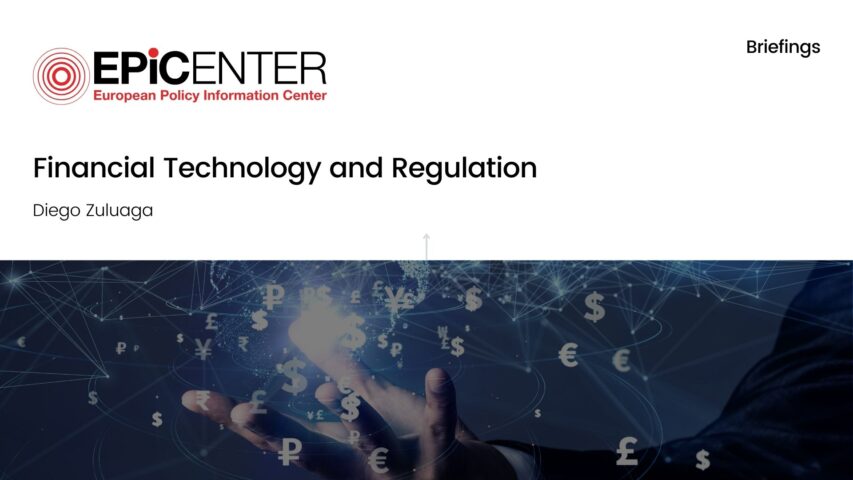Financial Technology and Regulation

Financial Technology and Regulation
November 2017
Recent years have seen a reduced supply of capital to domestic businesses by banks due to increased capital requirements and compliance costs.
Market finance has not acted as a perfect substitute for bank finance due to SMEs being unlikely to have the requisite information and expected returns. Technology may greatly reduce the costs for both service providers and recipients and is likely to replace traditional practices where processes are most standardised and tasks are repetitive.
Fintech is expected to affect nearly 25% of financial services activity by 2020. It may act as both complement & substitute.
Extending the British Financial Conduct Authority’s ‘sandbox’ to other European markets would reduce regulatory barriers to innovation whilst preserving consumer protection and financial stability. It is the first step towards an open environment for the application of technology to financial services.
Listen to the full INNOV8 panel discussion here.
Download or share this publication
View the PDF
EPICENTER publications and contributions from our member think tanks are designed to promote the discussion of economic issues and the role of markets in solving economic and social problems. As with all EPICENTER publications, the views expressed here are those of the author and not EPICENTER or its member think tanks (which have no corporate view).



